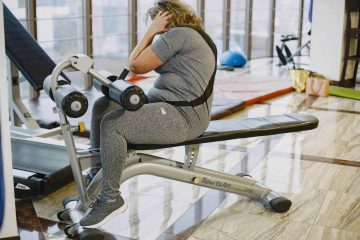
Many experts ask, “Can exercise help with depression?”
Depression is a common condition, but you may not be aware of the staggering number of people who suffer from it.
Around the globe, 280 million people suffer from depression. Each year, at least 21 million Americans experience a major depressive episode.
Untreated depression can lead to serious consequences.
It is all too common for people to over-rely on medications that can be harmful.
Exercise has been explored as a treatment for depression because of the need to find safer and more effective alternatives.
Understanding Depression
Depression is a mental disorder that can be complex.
This condition is marked by feelings of hopelessness and sadness that persist, as well as a general lack of enjoyment or interest in everyday activities.
The impact of this disorder on our daily lives is profound. It can lead to impaired social, occupational, and personal functioning, as well as strained relationships and a reduced quality of life.
Untreated depression may have severe consequences. For example, it can increase the risk of chronic illnesses or substance abuse.
Traditional Treatments of Depression
The traditional treatment for depression is primarily pharmacological, including antidepressant medication, as well as various forms of therapy.
These conventional treatments are not without their drawbacks, even though they have been effective for many.
Cost, accessibility, stigma, and availability can limit access to therapy.
Many experts and depression sufferers have found a natural, accessible, and safe treatment for depression: exercise.
Exercise and depression: How it improves mental health
Exercise has many benefits for your body, from weight loss to muscle growth.
Did you know that exercise can also be good for your mood and brain?
Regular physical activity is linked to better cognitive function, increased self-esteem, and a lower risk of anxiety and depression.
Endorphins are released
Ever heard of endorphins before? Endorphins are the body’s “feel-good” natural chemicals. They help relieve pain and promote a feeling of euphoria.
Exercise is crucial in fighting depression. It does this by encouraging the release of endorphins.
These endorphins can help reduce feelings of anxiety and sadness, which improves overall emotional well-being.
Increases in Neurotransmitters that Boost Mood
Exercise increases the production of serotonin, dopamine, and other neurotransmitters, which are crucial in mood regulation, motivation, and reward.
Exercise is a great way to relieve stress. It helps you focus on positive thoughts and emotions instead of negative ones.
Self-Esteem Increased
Physical activity can boost self-confidence and help you overcome challenges.
Exercise can also improve mood. Many people feel a boost in spirits after a workout.
One study found that exercise is more effective than certain medications!
Exercises for Depression
You don’t have to go into a packed weight room in order to exercise! There are many options. You can choose the activity that you most enjoy.
The workout that you do is more efficient than the one that you don’t. Here are some suggestions to get you going:
Exercise Aerobics
Aerobic exercise, or cardiovascular exercise, is a type of activity that increases your heart rate and respiration rate for a prolonged period. These exercises improve cardiovascular endurance and fitness.
- Jogging or fast walking
- Running
- Swimming
- Cycling or biking is a sport that can be done outdoors or indoors.
- Dancing (Zumba, salsa, aerobic dance classes)
- Jumping Rope
- Rowing
- Stair climbing or using a stepper machine
- Cross-country skiing
- Elliptical Training
Resistance Training
Resistance training is also called Strength Training. It involves exercising your muscles against a force. This force can be your body weight, weight, resistance bands, or your weight.
Here are some resistance training examples:
- Free Weights
- Resistance Bands
- Bodyweight Exercises
- Weight Machines
- Functional Training
Mindfulness-Based Exercise
Exercises that promote mindfulness encourage you to be present in the moment, develop self-awareness, and adopt a non-judgmental approach towards your thoughts and emotions.
- Yoga
- Tai Chi
- Mindfulness Meditation
- Wim Hof Breathing
- Walking Meditation
How long should you exercise?
The CDC recommends that you exercise at least 30 minutes a day, but the amount of time and frequency required can vary from person to person.
- Exercise 150 minutes per week at a moderate intensity, or
- 75 minutes of intense exercise per week, or
- Combining both
You can break this down into five days of 30-minute moderate-intensity exercise each day or three days of 25-minute high-intensity workout.
The CDC recommends that you double the recommended amount of time:
- 300 minutes of moderate-intensity exercise per week
- 150 minutes of high-intensity exercise per week
- A mixture of both
Does Muscle Weigh More Than Fat?
November 13, 2025Explore How Long Does a UTI Last?
November 10, 2025
Leave a reply Cancel reply
You must be logged in to post a comment.
-
How Performance Solutions Help Meet NCC Compliance
March 26, 2025 -
Where to find the end of lease cleaning Windsor ?
December 26, 2023





